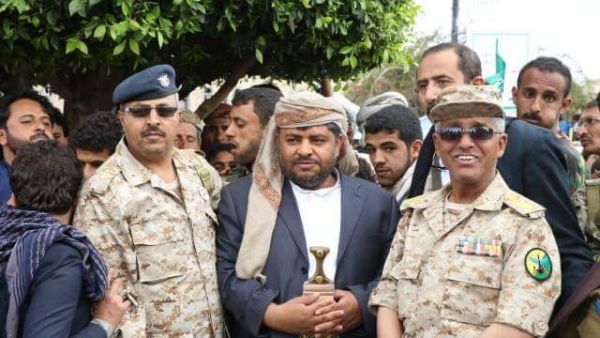A leading Houthi commander welcomed the Trump administration's call for a ceasefire in Yemen and described it as a "positive" development but urged more action to stop the U.S.-armed, Saudi-led coalition's deadly airstrikes.
Mohamed Ali al-Houthi, the head of the rebels' Supreme Revolutionary Committee, called on Thursday for those urging a ceasefire to "translate their desire to bring peace in Yemen into action".
He also urged them "to stop the bombing of Yemenis immiediately".
Al-Houthi's comments were carried on the al-Masirah network, which is run by the rebel group.
The comments come after the Trump administration said Riyadh should stop airstrikes against populated areas in Yemen, urging both the Houthis and the internationally-recognised government of President Abed Rabbo Mansour to agree to a truce.
"The time is now for the cessation of hostilities, including missile and UAV (drone) strikes from Houthi-controlled areas into the Kingdom of Saudi Arabia and the UAE. Subsequently, coalition air strikes must cease in all populated areas," said Mike Pompeo, U.S. secretary of state, on Wednesday.
Pompeo also said the U.S. was embarking on a new push for peace in Yemen, where upwards of 50,000 have died since the war began in what was already the Arab world's poorest country prior to the war.
Last week, the U.N. also warned that 14 million of Yemen's 28 million people now face a serious threat of famine, with more than 22 million in need of humanitarian assistance.
The U.N. has previously called Yemen the "world's worst humanitarian crisis".
Saudi Arabia intervened in Yemen in March 2015 to help Rabbo's government in its fight against Houthi rebels which captured the capital Sanaa the previous September.
In recent weeks, the architect of the Saudi intervention, Crown Prince Mohammed bin Salman, has come under increasing scrutiny over the murder of insider-turned-critic and Washington Post journalist Jamal Khashoggi at the Saudi consulate in Istanbul.
Khashoggi's death has brought near unprecedented international scrutiny on Saudi Arabia and its powerful crown prince. U.S. President Donald Trump, whose administration has made Riyadh the linchpin of its regional strategy to contain Iran, previously called it the "worst cover-up in history".
This article has been adapted from its original source.








